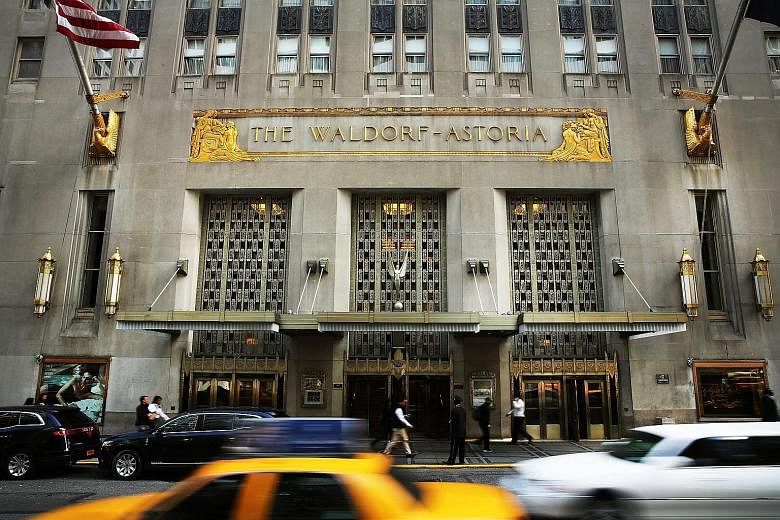LONDON • Anyone seeking to learn more about China's Anbang Insurance Group from its website will find a corporate "vision" that is cryptic and assertive.
Its vision is to "help customers to achieve dreams" while its business model is simply "win-win".
A section on corporate culture says: "We learn our way of living from water: being natural as water to link with clients, (the) market and society; being flexible, modest, open and inclusive as water to meet clients' diversified demands."
While its corporate message is whimsical, Anbang's actions reveal a wholly different character, The Financial Times (FT) has reported.
In just over a year, Anbang - which is only 12 years old - has gone from an international unknown to one of the most aggressive of a wave of Chinese companies that have taken to heart Beijing's directive to "go out", the newspaper said.
The Chinese insurer has announced US$32 billion (S$43 billion) in overseas deals in just 18 months. Since 2014, it has outbid competitors to snap up the Waldorf Astoria hotel, a US landmark, for US$1.95 billion; paid US$1.6 billion for US insurer Fidelity and Guaranty Life; US$1 billion for a controlling stake in Korean insurer Tongyang Life; and scooped up trophy properties in London and companies in Europe, the FT said.
In China, it astounded the insurance world in 2014 with successive fund-raising rounds that expanded its registered capital to 62 billion yuan (S$13 billion) from 12 billion yuan in less than a year.
This propelled it to first place among insurers, outstripping the likes of China Life and the People's Insurance Co of China, even though they far eclipse it in terms of premiums, the report said.
But Anbang has never published an audited financial statement. Nor does it divulge the identity of its ultimate owners, give a full list of its executives or explain how its growing roster of foreign subsidiaries fits within 10 business divisions listed on its website.
The FT said Anbang's enigmatic chairman, Mr Wu Xiaohui, 49, is thought to enjoy strong connections within the Communist Party elite, partly through his marriage to the granddaughter of Deng Xiaoping, the architect of modern China.
Mr Wu has never given a media interview, according to the report.
When respected magazine Caixin ran an investigative story titled "Dark Horse Anbang" in 2014, the company dispatched staff to the streets to buy up all the copies, the Southern Weekend paper said.
The lack of transparency, analysts say, may be linked to the preference among many Chinese bidders for all-cash offers, according to the report. A stocks-and-cash offer, common in the West, would require the Chinese company to divulge significant shareholder information and give a thorough account of its assets.

